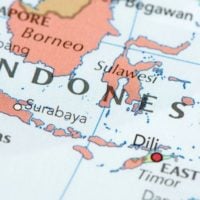Deadline: 27 April 2020
The European Union (EU) has announced a Call for Proposals to strengthen civil society, support genuine and equitable partnerships within CSOs in order to empower them and invest in capacity development.
The specific objective(s) of this call for proposals is to promote innovative forms of interactions between CSOs in local policy-making, aiming at good governance and development outcome through joint efforts.
The priorities of this call for proposals are:
- Priority Area 1: Support civil society organisations in initiatives that promote youth participation and empowerment at district and national level
- Support, advocate and pilot more effective and inclusive youth employment strategies and decent work opportunities.
- Support the provision of spaces for young people to meet (“youth spaces”).
- Support, advocate and pilot more relevant education, vocational training and skills development strategies offering youth better chances for employment / self-employment.
- Priority Area 2: Strengthening women’s CSOs capacities and engagement for participation in decision making process
- Strengthening policy dialogue on gender equality, human and women’s rights to empower women and girls.
- Promoting women and girls’ role as agents of development and change, for instance:
- Promoting their economic and social rights and empowerment; strengthening their voice and participation;
- Increasing targeted action towards gender equality.
- Priority Area 3: Strengthening the rule of law in crisis affected and fragile situations
- Strengthen resilience, particularly of the most vulnerable populations, for example in the face of environmental and economic shocks, natural and man-made disasters, conflicts and threats to health.
- Ensure that individuals, communities, institutions and countries can better prepare for, withstand, adapt to, and quickly recover from stresses and shocks without compromising long-term development prospects.
- Develop complementary actions between development and humanitarian actors, building on a shared analysis of risks and vulnerabilities.
Size of Grants
Any grant requested under this call for proposals must fall between the following minimum and maximum amounts:
- minimum amount: EUR 367,400
- maximum amount: EUR 734,800
Duration
The initial planned duration of an action may not be lower than 24 months nor exceed 48 months.
Location
Actions must take place in the following country: Kingdom of Lesotho.
Eligibility Criteria
- Lead applicant(s)
- In order to be eligible for a grant, the lead applicant must:
- be a legal person and
- be non-profit-making and
- be established in:
- the Kingdom of Lesotho or
- countries eligible for the European Development Fund or
- developing countries and territories, as included in the list of ODA recipients published by the OECD-DAC (‘list of ODA recipients’), and overseas countries and territories covered by Council Decision 2013/755/EU
- be directly responsible for the preparation and management of the action with the coapplicant(s) and affiliated entity(ies), not acting as an intermediary.
- In order to be eligible for a grant, the lead applicant must:
- Co-applicant(s)
- Co-applicants participate in designing and implementing the action, and the costs they incur are eligible in the same way as those incurred by the lead applicant.
- Co-applicants must satisfy the eligibility criteria as applicable to the lead applicant himself
- Affiliated Entity(ies)
- The lead applicant and its co-applicant(s) may act with affiliated entity(ies).
- Only the following entities may be considered as affiliated entities to the lead applicant and/or to coapplicant(s):
- Only entities having a structural link with the applicants (i.e. the lead applicant or a co-applicant), in particular a legal or capital link.
- This structural link encompasses mainly two notions:
- Control, as defined in Directive 2013/34/EU on the annual financial statements, consolidated financial statements and related reports of certain types of undertakings:
- Entities affiliated to an applicant may hence be:
- Entities directly or indirectly controlled by the applicant (daughter companies or first-tier subsidiaries). They may also be entities controlled by an entity controlled by the applicant (granddaughter companies or second-tier subsidiaries) and the same applies to further tiers of control;
- Entities directly or indirectly controlling the applicant (parent companies). Likewise, they may be entities controlling an entity controlling the applicant;
- Entities under the same direct or indirect control as the applicant (sister companies).
- Entities affiliated to an applicant may hence be:
- Membership, i.e. the applicant is legally defined as a e.g. network, federation, association in which the proposed affiliated entities also participate or the applicant participates in the same entity (e.g. network, federation, association,…) as the proposed affiliated entities.
- Control, as defined in Directive 2013/34/EU on the annual financial statements, consolidated financial statements and related reports of certain types of undertakings:
For more information, visit https://bit.ly/2WizLts









































